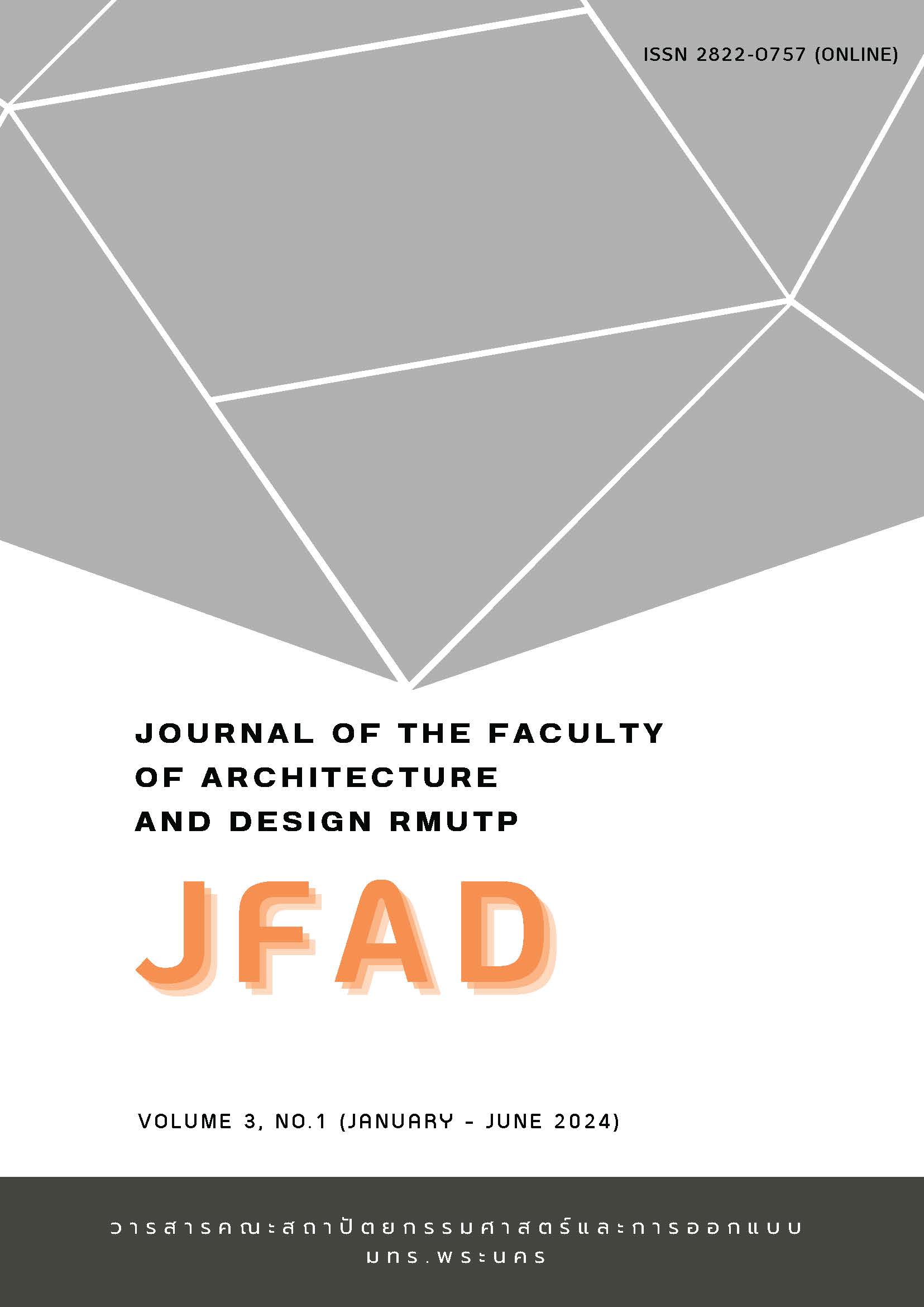Enhancing Urban Competitiveness through Arts, Food and Music Festivals
Main Article Content
Abstract
Article Details

This work is licensed under a Creative Commons Attribution-NonCommercial-NoDerivatives 4.0 International License.
Copyright (c) 2023 : Faculty of Architecture and Design, Rajamangala University of Technology Phra Nakhon
References
Bergamin Barbato, M & Mio, C. (2007). Accounting and the Development of Management Control in the Cultural Sphere: The Case of the Venice Biennale. Accounting, Business & Financial History, 17(1), 187-208. DOI: 10.1080/09585200601127871
Brown, A, O’Conner, J & Cohen, S. (2000). Local Music Policies with Global Music Industry: Cultural Quarters in Manchester and Sheffield. Geoforum, 31(4)), 437 – 451.
Chapple, K, Jackson, S & Martin, A. (2010). Concentrating Creativity: The Planning of Forrmal and Informal Arts Districts. City, Culture and Society, 1, 225 – 234.
Currid, E. (2007). The Economics of a Good Party: Social Mechanics and the Legitimization of Art/Culture. Arts and Culture Symposium, 31, 386 – 394.
Evans, G. (2005). Measure for Measure: Evaluating the Evidence of Culture’s Contribution to Regeneration. Urban Studies, 42(5), 959 – 983.
Foster, N. (2022). From Urban Consumption to Production: Rethinking the Role of Festivals in Urban Development Through Co-Creation. Urban Planning, 7(3), 379 – 393.
Grodach, C. (2009). Art Spaces, Public Space, and the Link to Community Development. Community Development Journal, 44(4), 474 – 493.
Lozano, M. (2023). Residents’ Perceptions of Social Benefits and Costs of the Oktoberfest Festival in Munich. Master’s Thesis in Tourism Development and Culture. ISCTE Business School, Instituto Universitario de Lisboa, Lisbon, Portugal.
Markusen, A & Gadwa, A. (2010). Creative Placemaking. Washington, DC: National Endowment for the Arts.
Popescu, R & Corbos, R. (2012). The Role of Festivals and Cultural Events in the Strategic Development of Cities: Recommendations for Urban Areas in Romania. Informatica Economica, 16(4), 19 – 28.
Ryabev, A, Salii, V & Shyian, D. (2021). Event Tourism Classification Limitations, Its Impact on the Infrastructure Support of Urban Tourism and the Approach to Overcoming Them, in: Theoretical Foundations in Practice and Science, December 21 – 24, 2021, in Bilbao, Spain, pp. 600 – 604.
Smith, A, Osborn, G & Quinn, B. (2022). Festivals and the City: The Contested Grographies of Urban Events. London: University of Westminster Press.
Stern, M & Seifert, S. (2010). Cultural Clustters: The Implications of Cultural Assets Agglomeration for Neighborhood Revitalization. Journal of Planning Education and Research, 29(3), 262 – 279.
Zorzetto, A, Barrios Padura, A & Molina Huelva, M. (2020). Ephemeral Architecture as Medium for Regenerating the Historical City: The Case of Venice, in Amoeda, R, Lira, S & Pinheiro, C. (eds): Heritage 2020: Proceedings of the 7th International Conference on Heritage and Sustainable Development, July 8 – 10, 2020 in Coimbra, Portugal, pp. 717 – 723.


